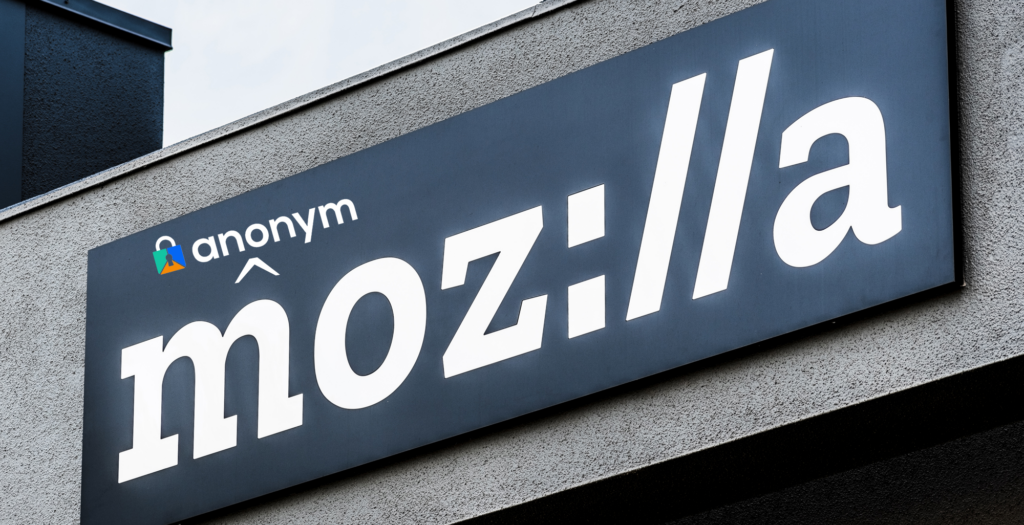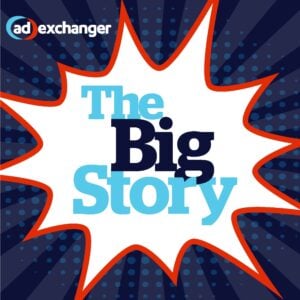Two years after leaving Meta to launch their own privacy-focused ad measurement startup in 2022, Graham Mudd and Brad Smallwood have sold their company to Mozilla.
The acquisition, announced on Monday, came together quickly, said Mozilla CEO Laura Chambers, who declined to share a deal price.
Mozilla had initially been talking to Anonym, which uses privacy-enhancing technologies to build measurement and targeting solutions, about a potential partnership.
“But that quickly turned into, ‘Wow, our missions are basically the same,’” Chambers said. “We realized that together we could move a lot faster.”
That shared mission is predicated on the notion that advertising and privacy are not – or at least don’t have to be – mutually exclusive.
“We both believe that privacy-preserving technologies are a critical part of the solution to the privacy problem in digital advertising,” Chambers said.
Forget the false dichotomy
Graham and Smallwood co-founded Anonym in 2022 after spending more than a decade apiece at Meta in executive roles focusing on measurement, ad monetization and marketing science.
Anonym, which has 13 employees, will now become a separate business unit within Mozilla to develop new solutions for privacy-safe measurement, targeting and optimization.
But the main focus over the next year will be on the go-to-market strategy, including hiring and expanding on Anonym’s existing products.
Many of these products are privacy-centric reimaginings of common advertising tactics. For example, Anonym has been working on a lookalike modeling tool to help advertisers increase reach among likely target audiences but “without leaking user-level data,” Mudd said.
Anonym also has technology that allows ad platforms and advertisers to securely share encrypted impression and conversion data within a trusted execution environment for attribution, causal lift measurement and lookalike modeling. (A trusted execution environment is the secure area of a main processor where code can be run safely and in isolation.)
To be fair, the major ad platforms have long offered attribution and measurement solutions, Mudd said. “But they required the data to come into their system,” he added. “In this world, that doesn’t have to happen.”
And a world where more data doesn’t need to flow into the walled gardens to give them even more of an advantage is a better, more equitable world, Smallwood said.
“That’s good for consumers,” he said, “but it’s also good for competition.”
An interesting point of view from the former VP of marketing science at one of the largest walled garden ad platforms on the planet.
But the reality is that it’s more than possible to have digital advertising that works without needing mass data collection and sharing, Mudd said. To say otherwise is a false dichotomy.
“Sometimes you hear from the ad platforms that we just can’t live without all of the data we’ve had,” he said. “But if you look at other industries – say financial services or health care – they went through major changes to become more privacy sensitive, and they were able to weather that just fine.”
What about Firefox?
As part of Mozilla, Anonym will have a lot of flexibility and freedom in terms of developing the product road map, Chambers said.
“We want them to stay nimble and keep doing the good stuff they’ve already been doing,” she said. “We really just want to support and enable them and give them the capacity of the Mozilla brand as they execute.”
But as to whether Anonym will create any privacy-focused technology specifically for Firefox, Mozilla’s web browser, nothing’s been planned yet. (Firefox regularly implements new anti-tracking tools and has blocked third-party cookies since 2019.)
“It’s not something we’re working on right now,” Mudd said, “but I think there’s an awesome path there and opportunities to partner with Firefox in the future.”














